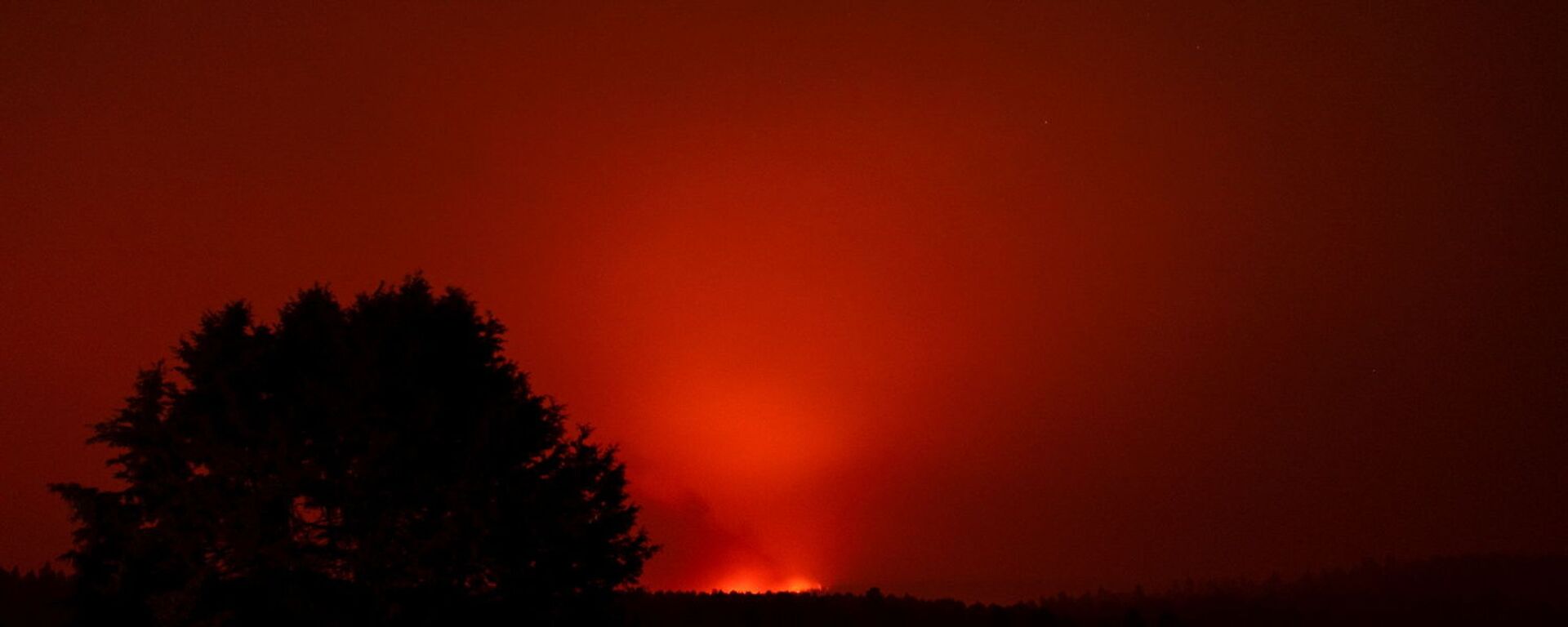https://sputnikglobe.com/20221229/forces-driving-scorching--deadly-us-heatwave-in-2021-probed-in-new-study-1105886580.html
Forces Driving Scorching & Deadly US Heatwave in 2021 Probed in New Study
Forces Driving Scorching & Deadly US Heatwave in 2021 Probed in New Study
Sputnik International
Forces driving the deadly US heatwave in 2021 have been probed by new study.
2022-12-29T14:20+0000
2022-12-29T14:20+0000
2022-12-29T14:21+0000
science & tech
us
heatwave
wildfires
https://cdn1.img.sputnikglobe.com/img/07e6/0c/1d/1105884688_0:54:3446:1992_1920x0_80_0_0_528e0313435ed8fe0a710588d1c896c6.jpg
The mechanism driving the catastrophic weather phenomenon that gripped western North America in 2021 has been revealed by researchers at the Department of Environmental Systems Science, Institute for Atmospheric and Climate Science, ETH Zurich, Zurich, Switzerland.The experts used the atmospheric Community Earth System Model to determine the causes of the heatwave, which affected the US states of Oregon and Washington, as well as the Canadian province of British Columbia, causing temperature to rise to 40-50 degrees Celsius in June-July 2021.At the time, the extreme temperatures normally typical for desert regions resulted in a death toll of 1,400 people and triggered deadly wild fires.The heatwave originated in the North Pacific Ocean, where high humidity over the open sea led to the emergence of air masses carrying potential energy. These masses traveled thousands of kilometers through atmospheric currents known as "ocean conveyor belts" and reached western North America, the research, published in the journal Earth's Future, states.The masses then spiraled down to the surface, and the potential energy turned into heat. The vertical expansion of the air masses brought in additional heat from the higher layers of the atmosphere, while the horizontal expansion brought dangerously soaring temperatures to a wide geographical area. Extremely low soil moisture also contributed to the heatwave, the authors say. The heatwave, which brought some of the highest temperatures ever recorded in the region, on some days exceeded average temperatures by 10 degrees Celsius (or 18 degrees Fahrenheit). The maximum surpassed on some days was by 30 degrees Celsius (54 degrees Fahrenheit). At the time, it was said that a disruption of the jet stream carrying air across the Northern Hemisphere along a circular path was at fault.
https://sputnikglobe.com/20210714/oregons-bootleg-wildfire-becomes-largest-us-blaze-after-consuming-over-200000-acres-1083386903.html
Sputnik International
feedback@sputniknews.com
+74956456601
MIA „Rosiya Segodnya“
2022
News
en_EN
Sputnik International
feedback@sputniknews.com
+74956456601
MIA „Rosiya Segodnya“
Sputnik International
feedback@sputniknews.com
+74956456601
MIA „Rosiya Segodnya“
blistering heatwave hammered western north america, forces driving deadly us heatwave in 2021,new study, atmospheric community earth system model, high humidity over the open sea, vertical expansion of air masses, brought in additional heat
blistering heatwave hammered western north america, forces driving deadly us heatwave in 2021,new study, atmospheric community earth system model, high humidity over the open sea, vertical expansion of air masses, brought in additional heat
Forces Driving Scorching & Deadly US Heatwave in 2021 Probed in New Study
14:20 GMT 29.12.2022 (Updated: 14:21 GMT 29.12.2022) In late June and early July 2021, a blistering heatwave hammered western North America, with searing temperatures on some days soaring above average regional numbers for the period by 30 C, or 54 F. Many uncontrollable wildfires were sparked by the hot weather, and around 1,400 people died from heat-related causes.
The mechanism driving the catastrophic weather phenomenon that gripped western North America in 2021 has been revealed by researchers at the Department of Environmental Systems Science, Institute for Atmospheric and Climate Science, ETH Zurich, Zurich, Switzerland.
The experts used the atmospheric Community Earth System Model to determine the causes of the heatwave, which affected the US states of Oregon and Washington, as well as the Canadian province of British Columbia, causing temperature to rise to 40-50 degrees Celsius in June-July 2021.
At the time, the
extreme temperatures normally typical for desert regions resulted in a death toll of 1,400 people and triggered deadly wild fires.
The heatwave originated in the North Pacific Ocean, where high humidity over the open sea led to the emergence of air masses carrying potential energy. These masses traveled thousands of kilometers through atmospheric currents known as "ocean conveyor belts" and reached western North America, the research, published in the journal Earth's Future, states.
The masses then spiraled down to the surface, and the potential energy turned into heat. The vertical expansion of the air masses brought in additional heat from the higher layers of the atmosphere, while the horizontal expansion brought dangerously soaring temperatures to a wide geographical area. Extremely low soil moisture also contributed to the heatwave, the authors say.
The heatwave, which brought some of the highest temperatures ever recorded in the region, on some days exceeded average temperatures by 10 degrees Celsius (or 18 degrees Fahrenheit). The maximum surpassed on some days was by 30 degrees Celsius (54 degrees Fahrenheit). At the time, it was said that a disruption of the jet stream carrying air across the Northern Hemisphere along a circular path was at fault.





